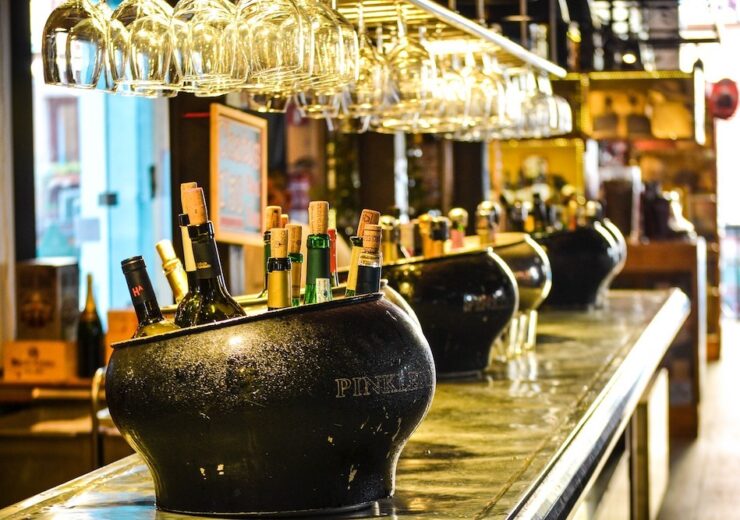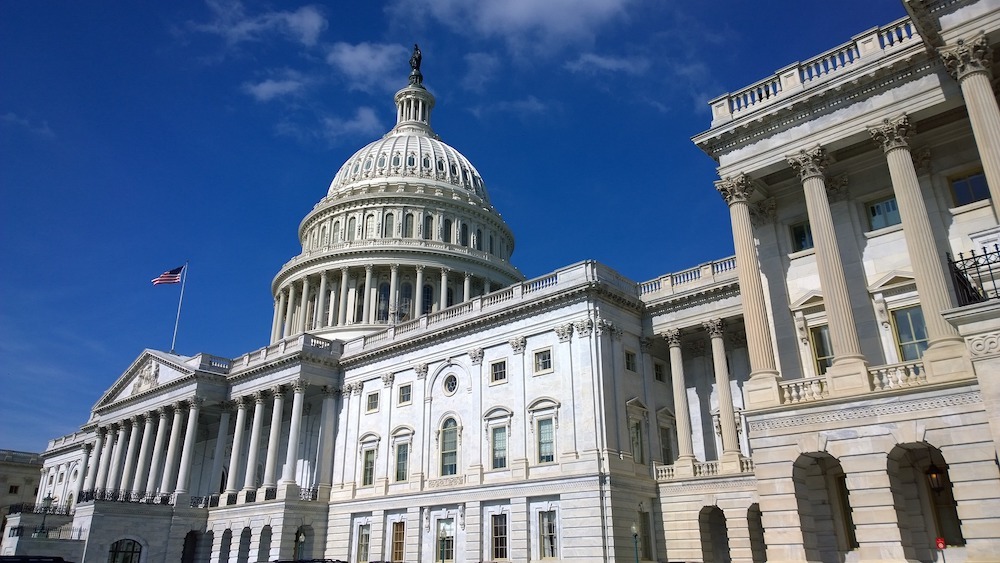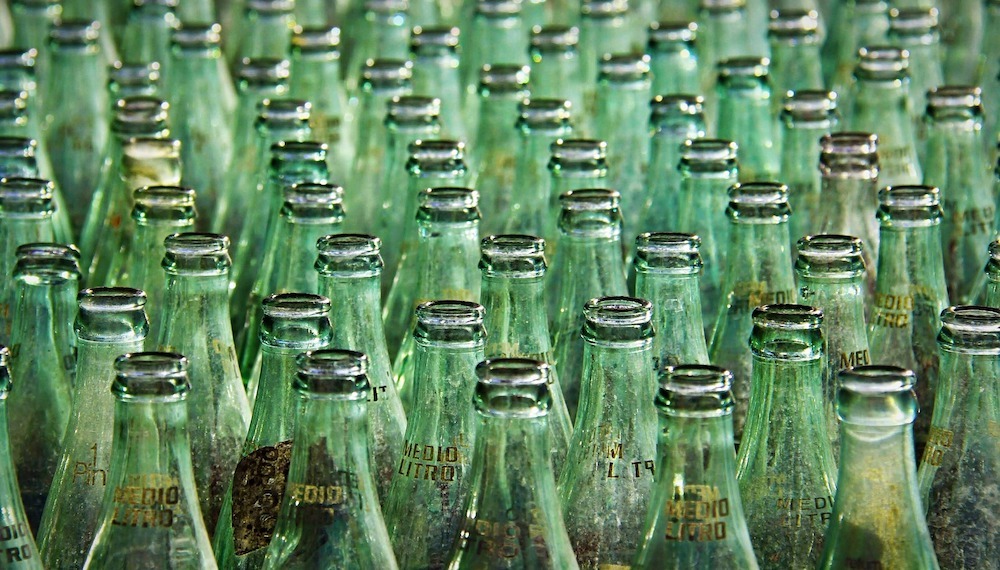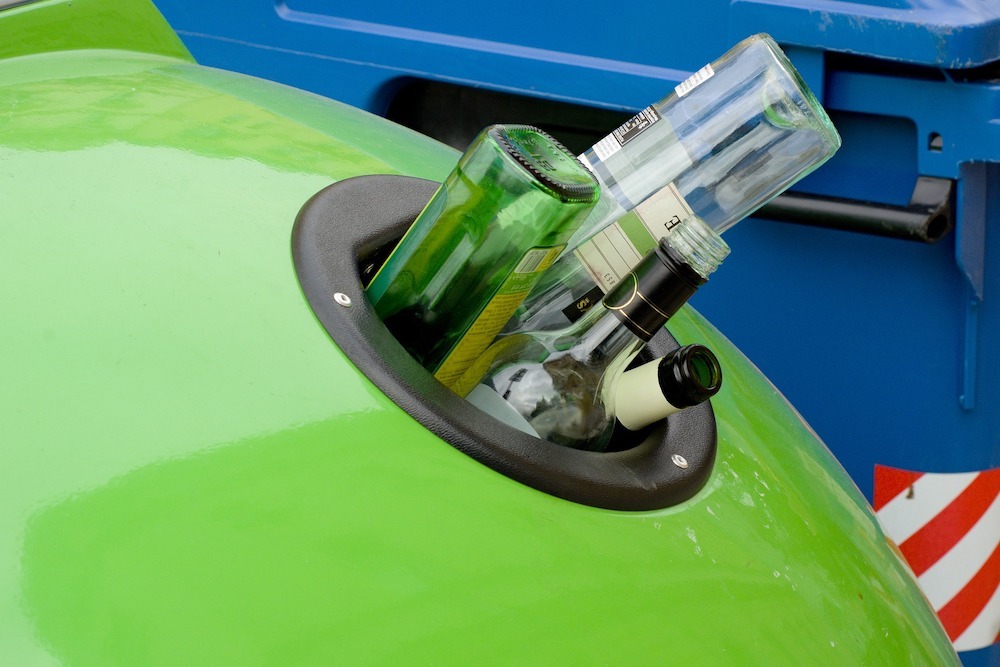Founded in 1919, the goals of the Glass Packaging Institute include promoting glass as the optimal packaging choice and advance environmental policies

Increasing demand from alcohol manufacturers is one of the reasons why the glass packaging industry is set to grow over the next few years (Credit: Pixabay)
For more than a century, the Glass Packaging Institute has represented the interests of the glass container industry in North America. NS Packaging’s Thomas Parker speaks to the organisation’s chairman and president about the current state of the sector.
In 2018, it was estimated that the glass packaging industry was worth $51bn across the globe – and this is only expected to grow over the next few years.
According to a report published by research company Fortune Business Insights, its market size is set to reach $81bn by 2027.
Part of this growth is due to the rising use of glass recycling, as well as the increasing demand from alcohol manufacturers.
One of the world’s biggest trade associations in this industry is the Glass Packaging Institute, which represents a large majority of container manufacturers and suppliers in North America.
Founded in 1919 as the Glass Container Association of America, the organisation promotes glass as the optimal packaging choice, advances environmental and recycling policies, advocates industry standards, and educates packaging professionals.
In a Q&A with NS Packaging, we speak to the Glass Packaging Institute’s chairman Betrand Paulet and its president Scott DeFie on how the sector is coping with the Covid-19 pandemic and the shift towards sustainability.
Glass Packaging Institute bosses on their career history
Bertrand Paulet: “I have close to 20 years of experience in consumer packaging, starting my career at Smurfit Kappa, eventually becoming CFO of the company’s American organisation.
“I joined Ardagh in 2017 to head up its Latin America operations, and was named president and CEO of Ardagh’s North American glass business in November of 2017.
“In January 2020, I became the chairman of the Glass Packaging Institute, the association of glass manufacturers in the US.”
Scott DeFife: “I started my policy career in Texas at the state government level, working on budget, tax and economic development issues.
“After moving to Washington, I ended up working for Members of Congress in the US House, expanding my policy work to energy, environment and financial services.

“Eventually I became a part of the House leadership staff, working on these issue areas and being a policy liaison with key senior staff and members.
“I then moved over to private sector trade association work in the financial markets industry before leading the policy, communications and economic teams at the National Restaurant Association.
“That is where I discovered a real enthusiasm for supply chain issues, and moved over to the Plastics Industry Association, where I could combine my food and beverage background with environmental policy on some emerging sustainability concerns, namely the need to upgrade the US domestic recycling infrastructure.
“This led to some collaborative work within the packaging and manufacturing arenas, which led me to the glass industry.
“I was thrilled to be selected to lead the Glass Packaging Institute.
“As president, I have enjoyed making the case for glass, working to bring more manufacturers and supply chain partners into the association, and support of their efforts to expand the glass customer base and address key challenges in the domestic markets.”
What was the state of the sector prior to Covid-19?
BP: “The state of the glass packaging business has remained solid, with many opportunities present in the US and throughout the world.
“As consumers, legislators, customers and the media continue to focus on the environmental characteristics of packaging, glass will increasingly benefit.
“A few data points as examples include the fact that glass bottles and jars are 100% recyclable and can be recycled endlessly without any loss in purity or quality.
“Glass packaging is also made from readily available domestic materials, such as sand, soda ash, limestone and ‘cullet’ – the industry term for furnace-ready recycled glass.”

SD: “Glass has been growing in a few key markets, including spirits, food and non-alcoholic beverages.
‘Brands have long sought ways to enhance their products’ shelf appeal, an area where glass is particularly well suited.
“Glass as a packaging material has always had strong consumer support, and the industry is growing again, as companies focus on increasing their sustainable and environmentally-friendly packaging portfolios.
“The Glass Packaging Institute and our members are engaging in important conversations with brands and retail groups, emphasising that glass can assist in their company’s efforts to meet their sustainability goals.
“To ensure a circular economy for glass in the US, we are urging policymakers on both the local and national level to keep, expand and improve glass recycling in programmes across communities.”
Glass Packaging Institute bosses on how the glass packaging sector has been impacted by Covid-19
BP: “Glass packaging was deemed an essential business by local and federal government as we continue to provide the needed food and beverage packaging in demand on retail store shelves across the country.
“Our industry, while strictly adhering to heightened safety procedures, continues to work closely with customers to deliver on product and service commitments, assuring glass packaging is available throughout our local communities.”
SD: “Like many industries, the glass container manufacturing and recycling industry swiftly adjusted to this new normal.
“Through association and individual company efforts, the glass container manufacturing industry and its supply chain were quickly deemed an ‘essential business’, enabling them to continue operations in support of the broader food and beverage industries.

“One major setback the industry faced was the suspension or relaxation of bottle redemption (aka “bottle bill”) programmes in the ten deposit states.
“The abrupt pause to these has prevented consumers from returning their glass bottles, jars and containers to retailers, causing a backlog in communities across the country.
“With the majority of the industry’s recycled glass collected through these programmes, the Glass Packaging Institute led a rapid response with other packaging partners to return these programmes to operational status in a safe and expeditious manner.
“This issue also served as a reminder to the larger packaging industry that recycled glass is absolutely critical for the production of new and sustainable glass products.”
What can be done for the glass packaging industry to bounce back from Covid-19?
BP: “After an initial drop in demand at the beginning of the pandemic, demand for our products has recovered and remained relatively consistent as we are an essential business, providing the needed food and beverage packaging to sustain our local communities.
“However, the mix of products that our customers require has changed, adjusting for increasing off-trade vs. on-trade consumption, and this points to the continued need for our industry to become increasingly flexible to adjust to the market needs.”
SD: “Although the glass packaging industry has experienced setbacks due to the pandemic, there have been bright spots during this time.

“A significant increase for in-store grocery purchases in 2020 has given the glass packaging industry a unique opportunity to remind the general public of the long-term sustainability of glass packaging for food and beverages.
“The economic impact of the pandemic has exposed the need to redouble efforts to collect more post-consumer glass for recycling and reuse.
“The industry will continue to provide these sustainable products for the food and beverage supply chain and encourage communities to continue recycling so it can be done in the most efficient and sustainable way.”
How the glass packaging industry is adapting to more sustainable businesses and consumers
BP: “The business and consumer shift we’re seeing towards more sustainable products means a shift away from plastic packaging.
“In Europe, the glass industry has clearly benefited in recent times from consumers asking for more sustainable packaging.
“In the US however, we have yet to see a true shift in consumer habits, and while we are seeing some emerging trends I do believe we will see a gradual shift towards more glass packaging over time.

“Glass is a perfect answer for consumers and customers seeking infinitely recyclable packaging that positively contributes to a truly circular economy.
“For example, a glass container can go from a recycling bin to a store shelf in as little as 30 days, with an estimated 80% of recovered glass containers made into new glass bottles.”
SD: “Sustainability is at the core of glass packaging, and the recent trends towards more sustainable and eco-friendly packaging are advanced by glass bottles and jars.
“Brands are driving this effort with company sustainability goals and increased attention to the circular economy to reduce their environmental footprint throughout the supply chain.
“Glass is well-positioned among packaging to assist in these efforts, providing an endlessly recyclable package, with a domestic production and localised recycling footprint, and an average recycled content rate of more than 30% nationwide today.
“With increasing attention being paid to plastic waste reduction, marine debris and environmental conservation efforts, glass packaging remains an appealing option.”
